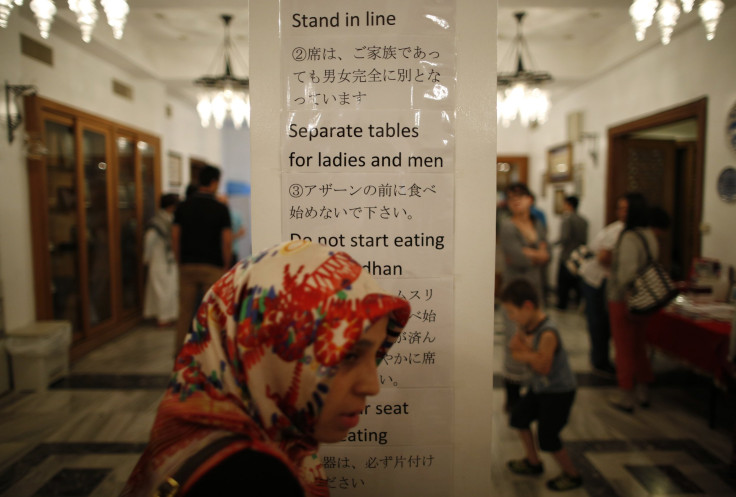Japan ISIS Update: Japanese Muslims Condemn Islamic State Actions, Fearing Damage To Islam Image

Muslims in Japan said the Islamic State militant group does not represent them and could further propagate misconceptions about the religion in the country. Japanese Muslim leaders have called the group's capture of two Japanese hostages an “unforgivable act of cruelty,” according to local media sources.
“The Muslims have long been misunderstood in Japan. An incident like this could further breed the illusion that Islam is a religion for terrorists,” said Shigeru Shimoyama, a spokesman for Tokyo Camii, the nation’s largest mosque, according to Japan Times. He denounced the video as “despicable” and “un-Islamic.”
Shimoyama said the killing of one innocent person is tantamount to killing all of mankind and that the Islamic State terrorists, whose acts contradict Islam’s respect for human life, “are not Muslims.” Tokyo Camii has also put out a similar statement on its website, calling for understanding and prayers for the two hostages.
An unnamed Muslim man contacted at the Hokkaido Islamic Society by Japan Times said that the Japanese public would be understanding that not all Muslims are extremists and violent. “Whatever ISIS may commit, I believe most Japanese are sane enough to know the extremist group doesn’t belong to us,” he said, using another name for the Islamic State group.
ISIS released a video on Tuesday showing two Japanese hostages in orange jumpsuits as their captor threatened to behead them with a knife if a ransom of $200 million was not paid up in 72 hours. "[Y]ou now have 72 hours to pressure your government into making a wise decision by paying the $200million to save the lives of your citizens," the captor said in the video, adding that the ransom is to match the amount Japanese Prime Minister Shinzo Abe promised in nonmilitary aid to countries fighting terrorism in the Middle East at the start of his tour in the region. Abe has asked Palestinian, Jordanian, Egyptian and Turkish leaders for help in rescuing the hostages.
The estimated Muslim population in Japan is around 100,000, according to studies done by scholars. Roughly 90 percent of the Muslims in the country are estimated to be resident foreigners and 10 percent are native Japanese. The first recorded Japanese to convert to Islam was in 1909, but the Muslim population in Japan did not take off until in the 1980s. Many of the early Muslims in the country were from Pakistan, Bangladesh and Iran, who came to Japan to work, and the Tokyo Camii, built as early as 1938 and destroyed in 1986, was rebuilt in 2000.
© Copyright IBTimes 2025. All rights reserved.






















